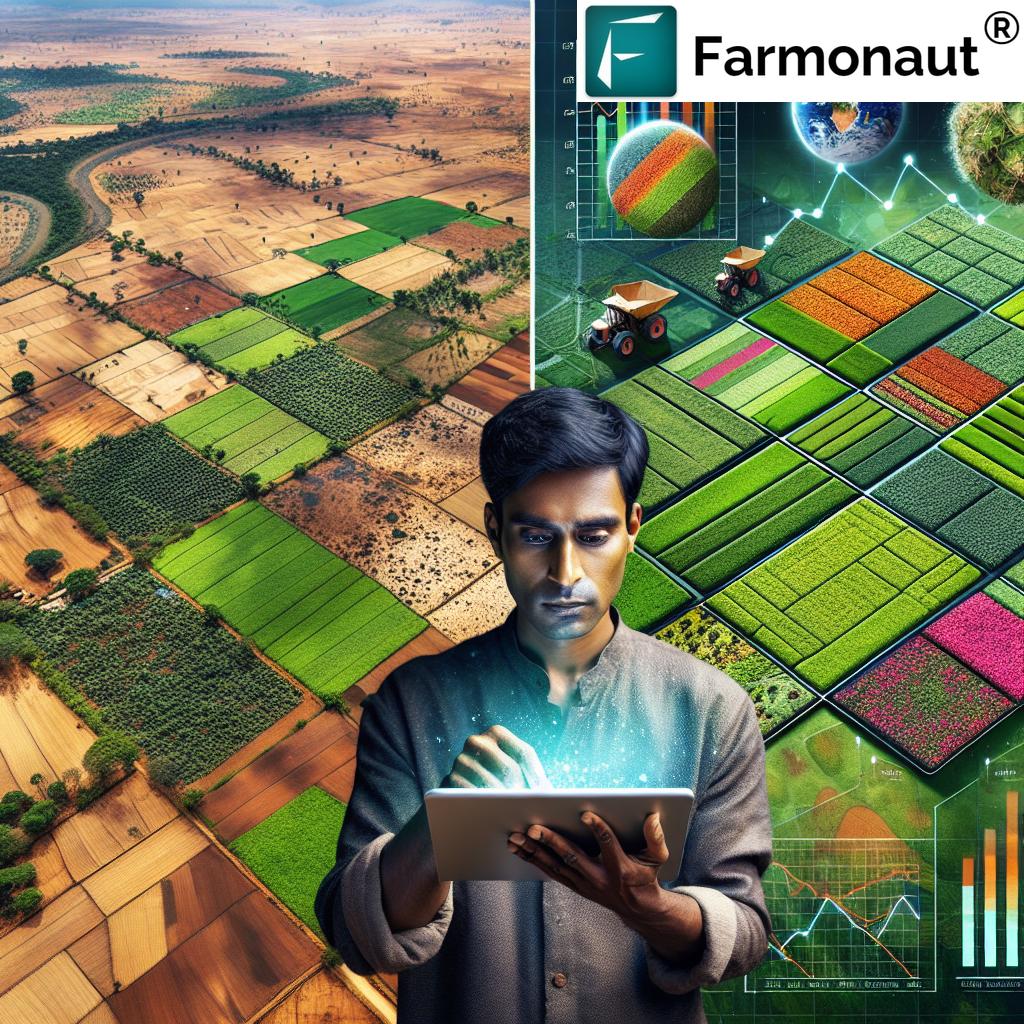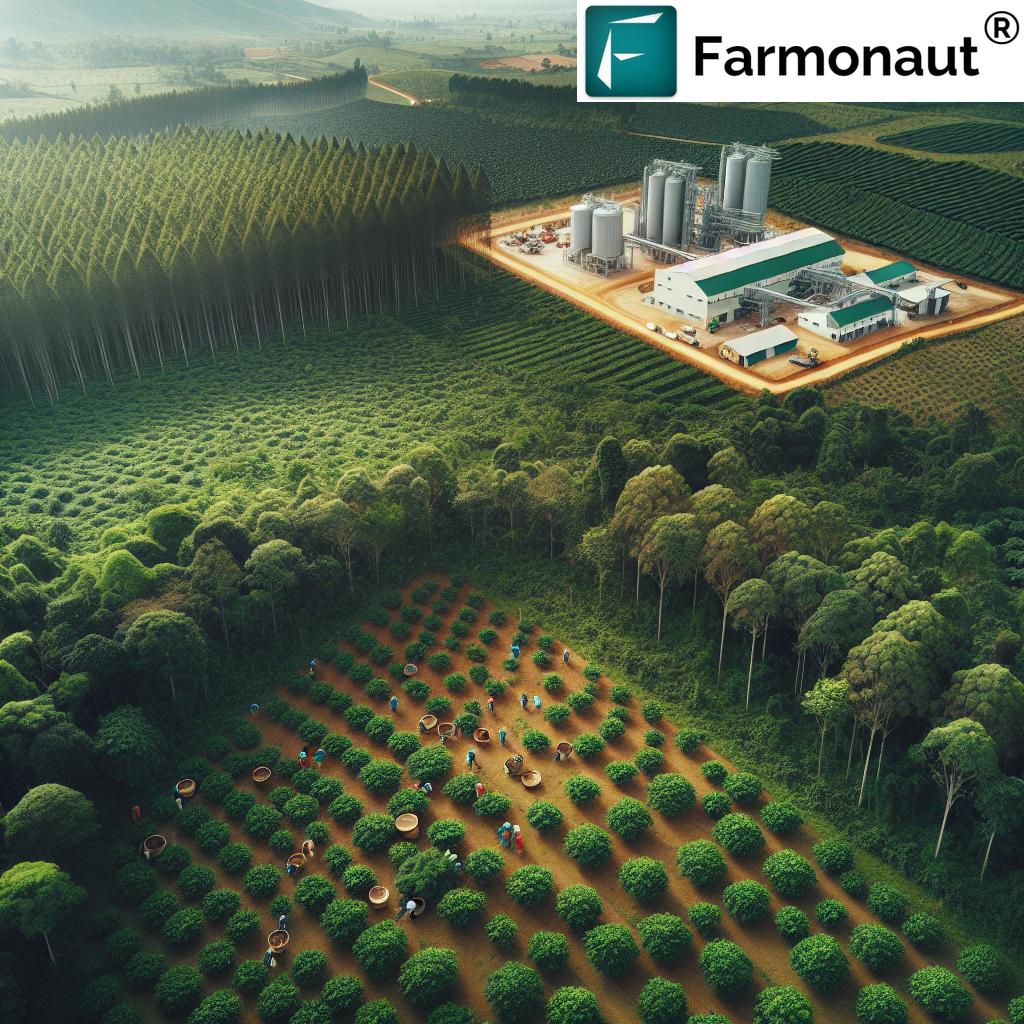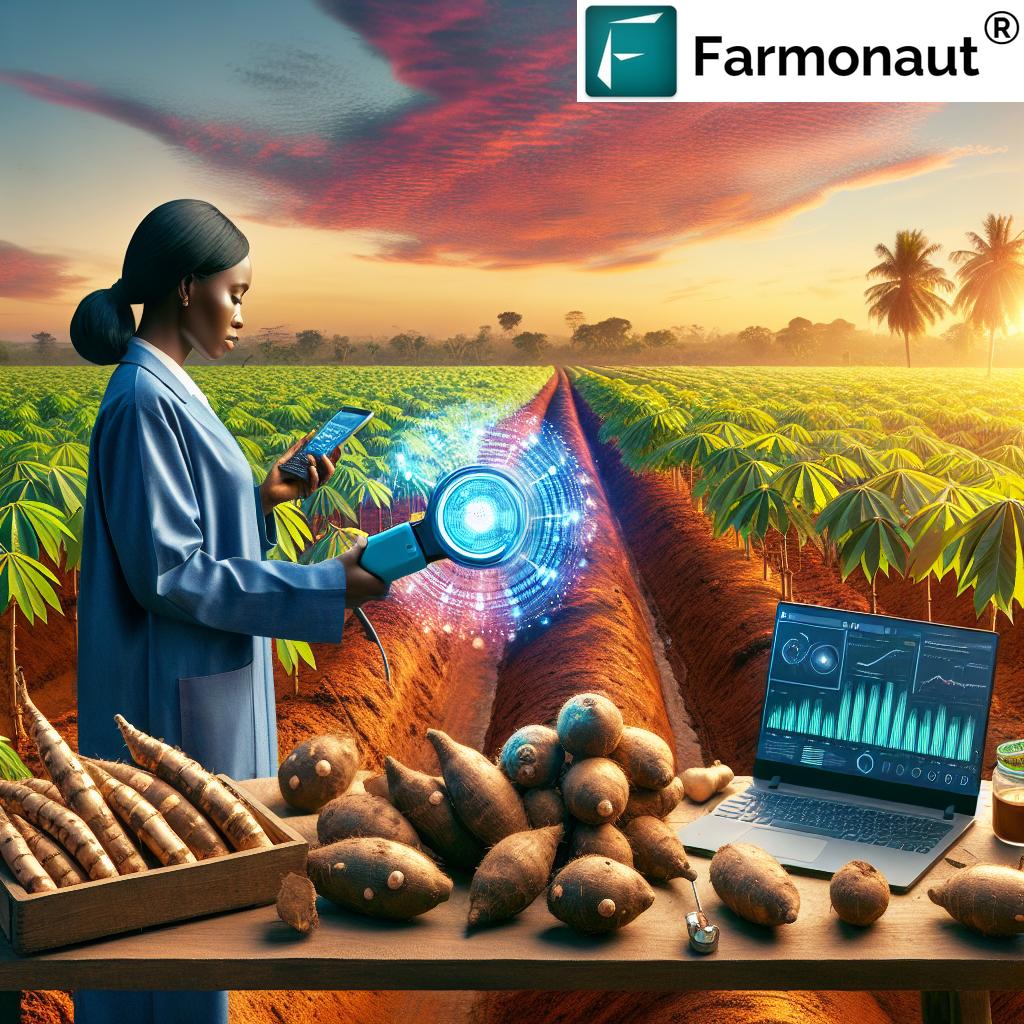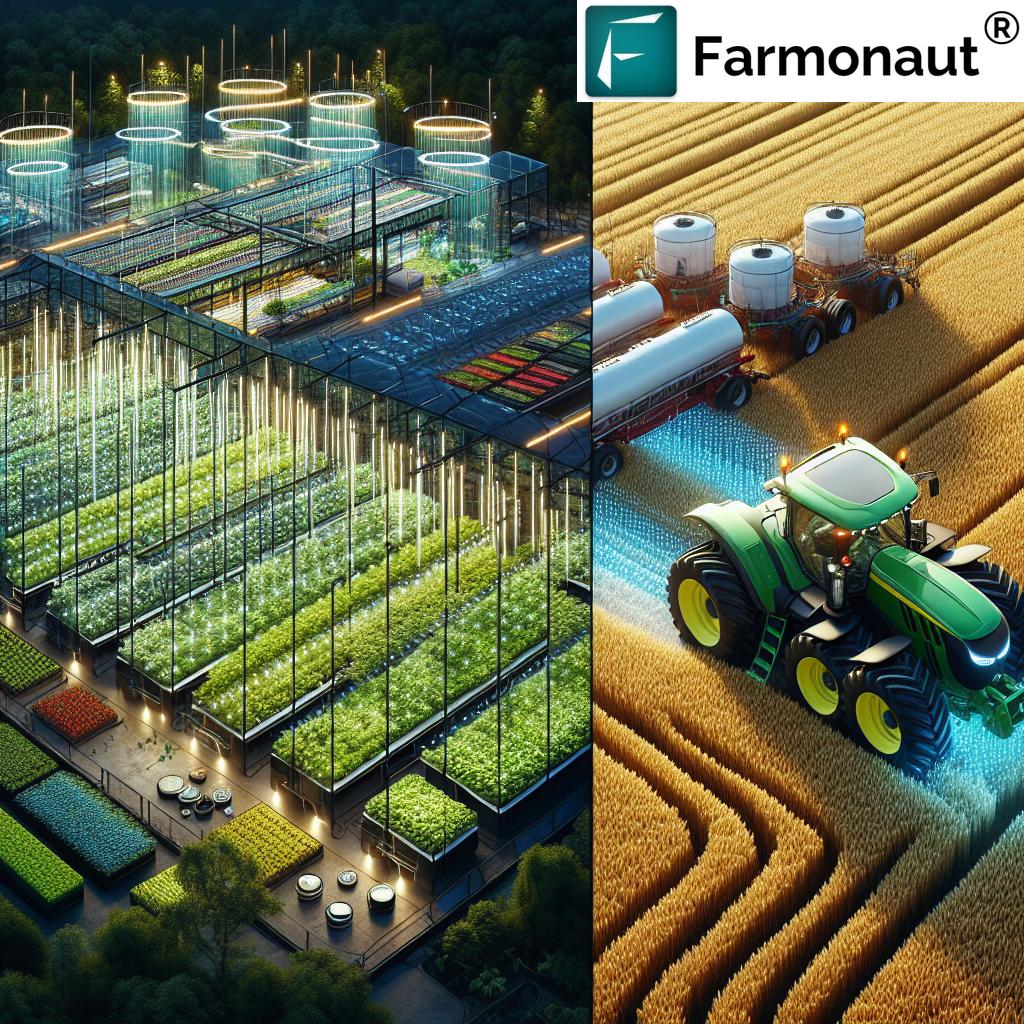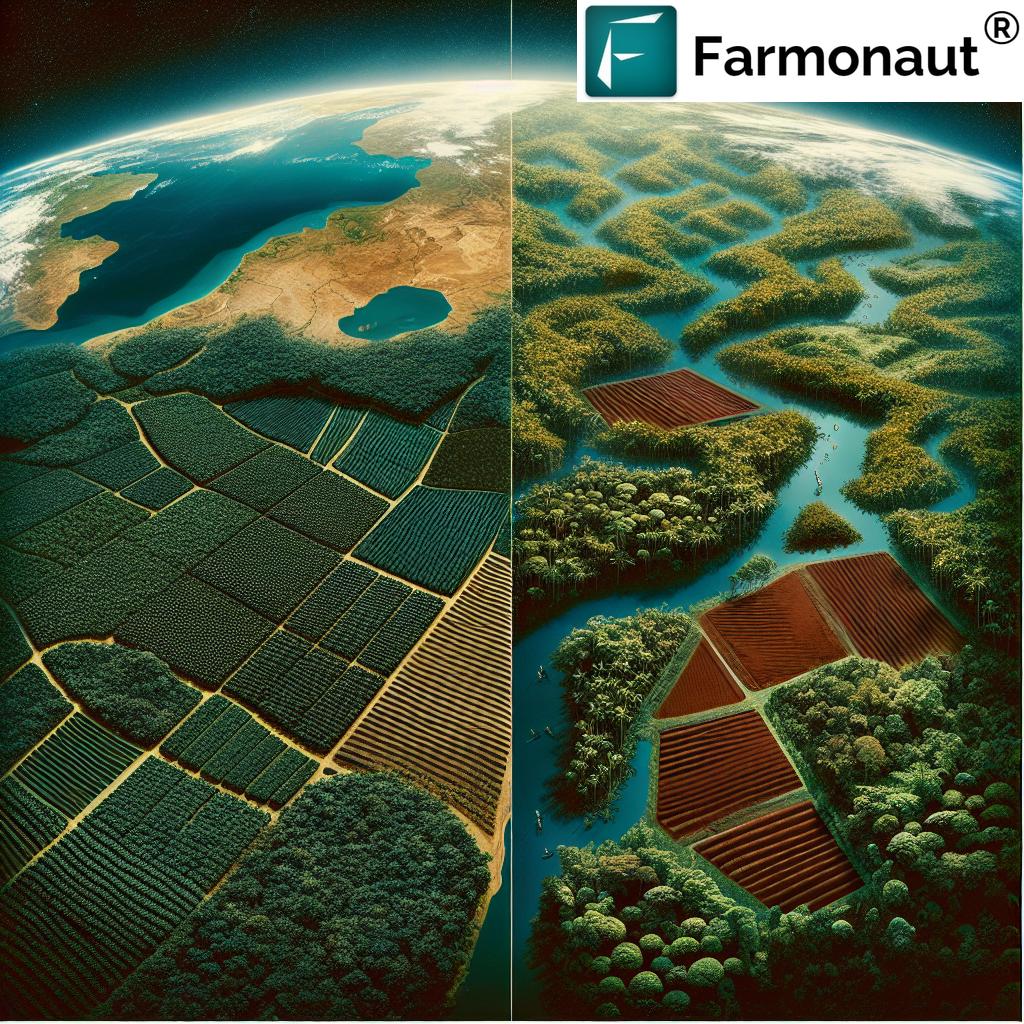Revolutionizing Cocoa Farming: How Sustainable Practices in Ghana Are Transforming Lives and Landscapes
“Ghana and Côte d’Ivoire produce over 60% of the world’s cocoa, making sustainable practices crucial for global supply.”
In the heart of West Africa, a revolution is taking place that’s transforming not just the cocoa industry, but the lives of farmers and the very landscape itself. We’re witnessing a remarkable shift towards sustainable cocoa production that’s setting new standards for environmental stewardship and social responsibility. As we delve into this exciting transformation, we’ll explore how innovative farming practices are addressing critical challenges such as deforestation, climate resilience, and farmer income in Ghana and beyond.
The Rise of Sustainable Cocoa Production
Sustainable cocoa production has become more than just a buzzword; it’s a necessity for the future of the industry. With growing concerns about deforestation, climate change, and farmer welfare, the global cocoa sector is undergoing a paradigm shift. At the forefront of this change is the implementation of sustainable farming practices that not only protect the environment but also improve the livelihoods of cocoa farmers.
Here at Farmonaut, we’re passionate about leveraging technology to support sustainable agriculture. While our focus is on providing advanced satellite-based farm management solutions, we recognize the importance of initiatives like those transforming cocoa farming in Ghana. Our mission aligns with the broader goals of making agriculture more sustainable and profitable for farmers worldwide.
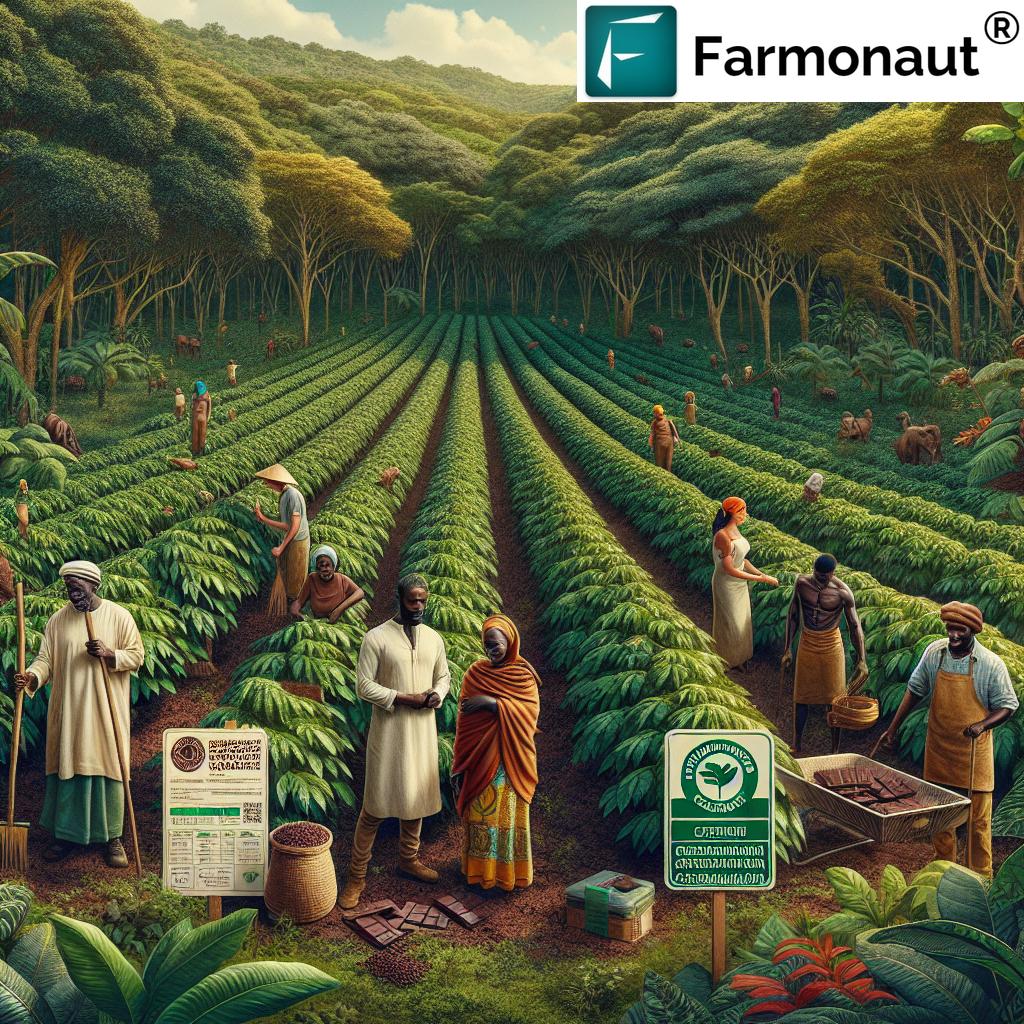
The Power of Certification: Rainforest Alliance’s Impact
One of the key drivers of change in the cocoa sector is the rainforest certification seal. This certification is revolutionizing ethical cocoa sourcing and supply chain responsibility. By adhering to strict environmental and social standards, certified cocoa farms are making significant strides in combating deforestation, improving biodiversity, and enhancing the quality of life for farming communities.
“Rainforest Alliance certification has helped reduce deforestation rates by up to 30% in cocoa-growing regions.”
The impact of certification extends beyond environmental benefits. It’s creating a ripple effect throughout the entire cocoa supply chain, encouraging businesses to take greater responsibility for their sourcing practices. This shift is not just good for the planet; it’s good for business too, as consumers increasingly demand sustainably produced products.
Transforming Lives: The Farmer’s Perspective
At the heart of sustainable cocoa production are the farmers themselves. In Ghana, initiatives focused on cocoa farmer sustainability are making a real difference. These programs are designed to address the multifaceted challenges faced by cocoa farmers, including:
- Low incomes
- Limited access to education and healthcare
- Vulnerability to climate change
- Lack of financial literacy and business skills
By implementing sustainable farming practices, farmers are seeing tangible benefits. These include:
- Increased yields through improved agricultural techniques
- Higher quality cocoa beans that command premium prices
- Diversified income streams through intercropping and agroforestry
- Enhanced resilience to climate change impacts
While Farmonaut doesn’t directly work with cocoa farmers, our satellite-based crop health monitoring and AI advisory systems could potentially benefit cocoa farmers by providing real-time insights into their crops’ health and optimal management practices.
Tackling Deforestation: A Critical Challenge
One of the most pressing issues in cocoa production has been its contribution to deforestation. The drive for deforestation-free cocoa is now at the forefront of sustainability efforts in Ghana and Côte d’Ivoire. Innovative approaches are being implemented to break the link between cocoa production and forest loss:
- Agroforestry systems that integrate cocoa with other tree species
- Rehabilitation of degraded lands for cocoa cultivation
- Strict monitoring and enforcement of forest boundaries
- Community-based forest management programs
These efforts are not only preserving vital ecosystems but also enhancing the long-term viability of cocoa production. By maintaining forest cover, farmers are helping to regulate local climates, preserve water sources, and protect biodiversity – all crucial factors for sustainable cocoa farming.
Climate Resilience: Adapting to a Changing World
Climate resilient agriculture is becoming increasingly important in the face of global warming. Cocoa farmers in Ghana are at the forefront of adopting practices that help them adapt to and mitigate the effects of climate change:
- Drought-resistant cocoa varieties
- Improved water management techniques
- Shade tree planting to regulate temperature and moisture
- Soil conservation practices to enhance fertility and water retention
These climate-smart practices not only help farmers cope with changing weather patterns but also contribute to reducing the carbon footprint of cocoa production. At Farmonaut, we understand the importance of climate resilience in agriculture. Our satellite-based monitoring systems can help farmers track changes in their environment and make informed decisions to adapt their practices accordingly.
The Role of Technology in Sustainable Cocoa Farming
Technology is playing an increasingly important role in driving sustainability in the cocoa sector. From satellite monitoring to blockchain traceability, innovative tools are helping to transform how cocoa is produced and tracked:
- Satellite imagery for monitoring deforestation and land use changes
- Mobile apps providing farmers with real-time market information and agronomic advice
- Blockchain technology ensuring transparency in the supply chain
- Precision agriculture techniques for optimizing resource use
As a leader in agricultural technology, Farmonaut is at the forefront of this technological revolution. While we don’t specifically focus on cocoa, our solutions for satellite-based crop health monitoring, AI-driven advisory systems, and blockchain-based traceability have the potential to benefit cocoa farmers and the entire supply chain.
To learn more about our innovative agricultural solutions, visit our API or check out our API Developer Docs.
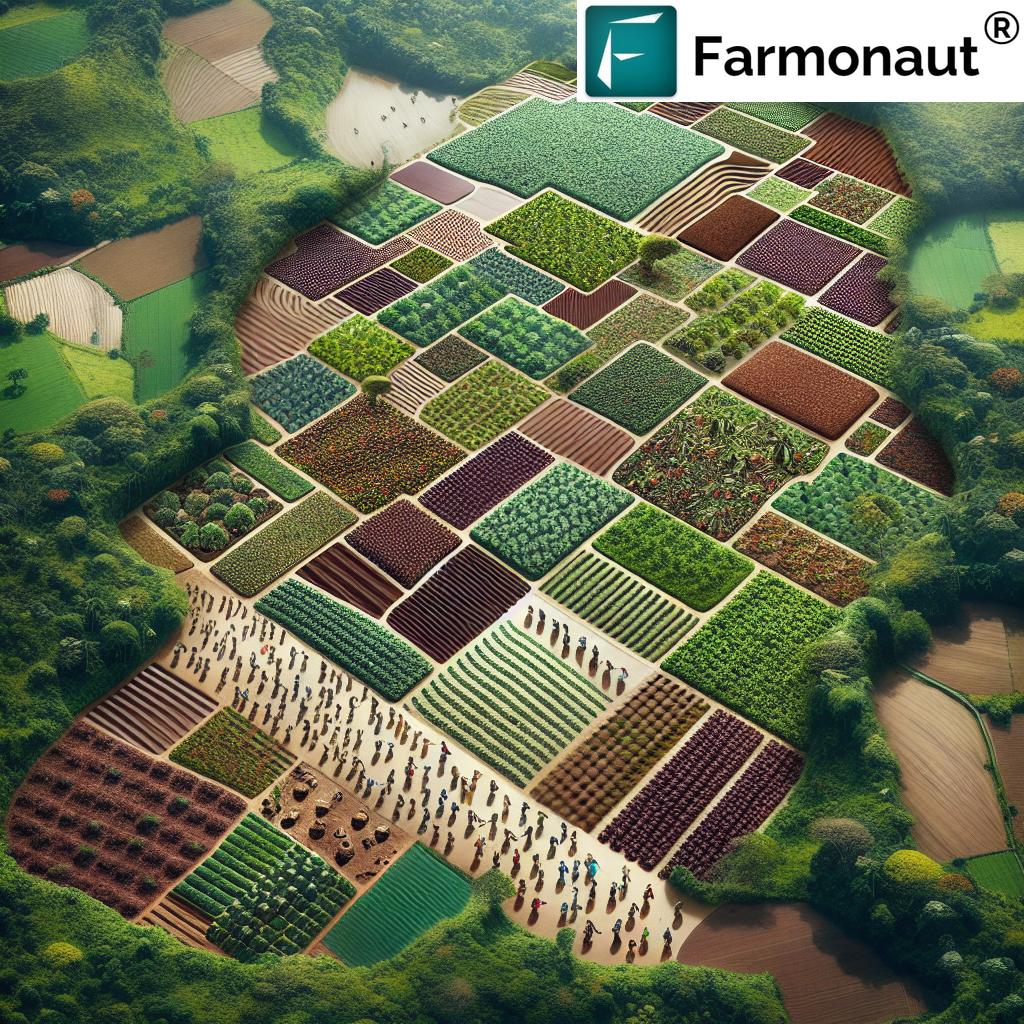
Partnerships Driving Change
The transformation of Ghana’s cocoa sector is not happening in isolation. It’s the result of collaborative efforts between various stakeholders:
- Government initiatives promoting sustainable agriculture
- NGOs providing training and support to farmers
- Private sector companies investing in sustainable supply chains
- Research institutions developing improved cocoa varieties and farming techniques
These partnerships are crucial for addressing the complex challenges facing the cocoa industry. They’re helping to create a more equitable and sustainable cocoa sector that benefits everyone from farmers to consumers.
The Business Case for Sustainable Cocoa
Sustainability in the cocoa sector isn’t just an ethical imperative; it’s increasingly becoming a business necessity. Companies are recognizing that sustainable commodity markets are the future of the industry. Here’s why:
- Consumer demand for ethically sourced products is growing
- Sustainable practices help secure long-term supply by protecting environments and supporting farmers
- Certification programs provide a competitive advantage in the market
- Risk mitigation against climate change and social issues in the supply chain
Businesses are now investing in sustainability differentials and programs designed to improve cocoa farmers’ livelihoods while protecting vital ecosystems. These investments are not just corporate social responsibility; they’re strategic moves to ensure the future viability of the cocoa industry.
Navigating New Regulations: The EU Deforestation Regulation
As the global regulatory landscape evolves, businesses in the cocoa sector are facing new challenges and opportunities. The EU Deforestation Regulation, for example, is set to have a significant impact on cocoa sourcing practices. Companies are now looking for ways to ensure their supply chains comply with these new regulations.
Risk assessment tools are becoming increasingly important in this context. These tools help businesses:
- Identify potential deforestation risks in their supply chains
- Implement due diligence processes to ensure compliance
- Demonstrate transparency and accountability to regulators and consumers
While Farmonaut doesn’t specifically focus on cocoa or deforestation monitoring, our satellite-based monitoring technologies could potentially be adapted to help businesses track land use changes and ensure compliance with regulations like the EU Deforestation Regulation.
The Impact of Regenerative Agriculture
Regenerative agriculture is emerging as a powerful approach to cocoa farming that goes beyond sustainability to actively restore and improve ecosystems. This holistic approach to farming is having a profound impact on cocoa landscapes and communities in Ghana:
- Enhancing soil health and biodiversity
- Increasing carbon sequestration in soils and vegetation
- Improving water retention and reducing erosion
- Boosting overall farm productivity and resilience
By adopting regenerative practices, cocoa farmers are not just maintaining their land; they’re actively improving it for future generations. This approach aligns perfectly with the principles of sustainable cocoa production and is set to play an increasingly important role in the sector’s future.
The Future of Sustainable Cocoa: Challenges and Opportunities
As we look to the future of sustainable cocoa production in Ghana and beyond, we see both challenges and opportunities:
Challenges:
- Scaling up sustainable practices to reach all cocoa farmers
- Addressing the ongoing threat of deforestation
- Ensuring fair prices and living incomes for farmers
- Adapting to increasingly unpredictable climate conditions
Opportunities:
- Leveraging technology for improved farm management and traceability
- Developing new markets for sustainably produced cocoa
- Empowering women and youth in cocoa farming communities
- Creating more resilient and diversified cocoa farming systems
The journey towards a fully sustainable cocoa sector is ongoing, but the progress made in Ghana shows what’s possible when farmers, businesses, governments, and NGOs work together towards a common goal.
Sustainable Cocoa Farming Impact Comparison
| Farming Aspect | Traditional Practices | Sustainable Practices | Estimated Impact |
|---|---|---|---|
| Annual Deforestation Rate | 2-3% of forest cover | 0-0.5% of forest cover | 80-90% reduction |
| Average Farmer Income | $0.50-$1 per day | $2-$3 per day | 200-300% increase |
| Carbon Footprint | High due to deforestation | Low, potential carbon sink | 50-70% reduction |
| Biodiversity Impact | Significant habitat loss | Habitat preservation and restoration | 30-50% improvement |
| Water Usage | Inefficient irrigation | Water-saving techniques | 40-60% reduction |
| Soil Health | Degradation over time | Improved fertility and structure | 50-100% improvement |
| Pest Management | Heavy chemical use | Integrated Pest Management | 70-90% reduction in chemical use |
| Community Development | Limited investment | Holistic community programs | Significant improvement in education, health, and infrastructure |
Conclusion: A Brighter Future for Cocoa
The transformation of cocoa farming in Ghana through sustainable practices is a testament to what can be achieved when environmental protection and economic prosperity are balanced. From addressing deforestation to improving farmer livelihoods, the initiatives underway are creating a more resilient and equitable cocoa sector.
As we’ve seen, technology plays a crucial role in this transformation. At Farmonaut, we’re proud to be part of the broader agricultural technology landscape that’s helping to drive sustainability across various crops and regions. While our focus isn’t specifically on cocoa, our innovative solutions for satellite-based farm management have the potential to support sustainable farming practices in many contexts.
The journey towards fully sustainable cocoa production is ongoing, but the progress made in Ghana provides a blueprint for other cocoa-producing regions and indeed for sustainable agriculture as a whole. By continuing to innovate, collaborate, and prioritize both environmental and social sustainability, we can ensure a brighter future for cocoa farmers, their communities, and the planet.
FAQs
- What is sustainable cocoa production?
Sustainable cocoa production involves farming practices that protect the environment, support farmer livelihoods, and ensure long-term viability of cocoa cultivation without depleting natural resources. - How does the Rainforest Alliance certification benefit cocoa farmers?
Rainforest Alliance certification helps farmers implement sustainable practices, potentially increasing yields and income while protecting the environment. It also provides access to premium markets. - What are some key sustainable practices in cocoa farming?
Key practices include agroforestry, integrated pest management, soil conservation, water management, and diversification of income sources. - How does sustainable cocoa farming address deforestation?
It promotes practices like agroforestry and rehabilitation of degraded lands, reducing the need to clear forests for new cocoa plantations. - What role does technology play in sustainable cocoa farming?
Technology aids in satellite monitoring of farms, provides real-time agronomic advice, ensures supply chain traceability, and helps in precision agriculture techniques.
Explore how Farmonaut’s technology can support sustainable agriculture:





